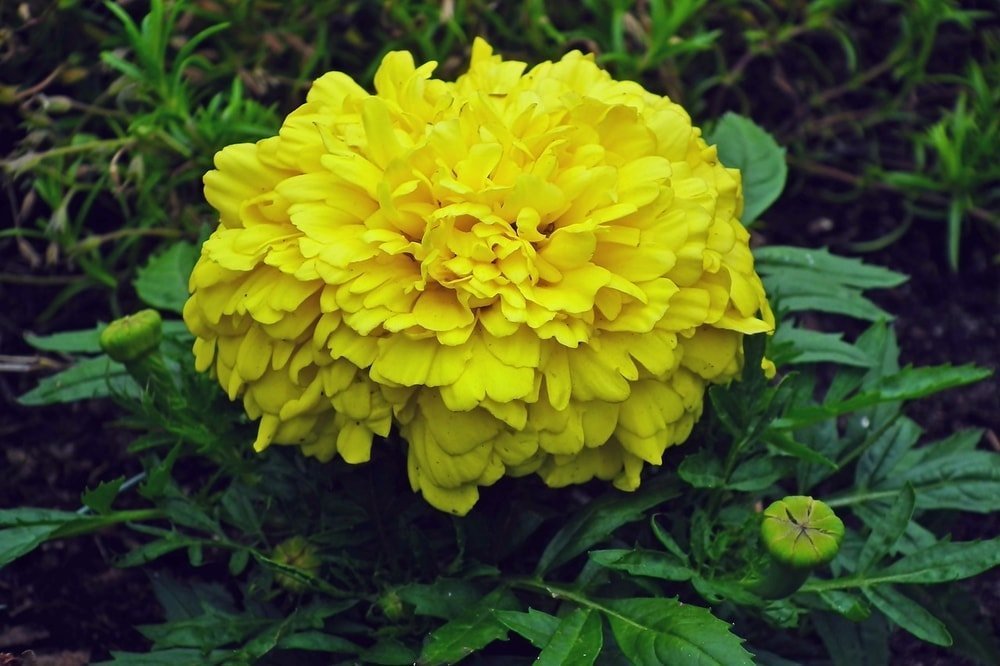It takes a lot of care to cultivate a beautiful garden. A big part of that care involves controlling harmful insects that can damage your plants. You probably won’t have to deal with a plague of locusts, but you’ll have plenty of other six-legged pests to worry about.
There are various ways to deal with these creatures. They range from synthetic chemicals to physical traps to introducing natural predators. We’ll provide an overview here of ways you could choose to handle pests and so have a healthier garden.
Not All Bugs Are Pests
First, we should clarify one term we’ll use here – we’re sure some astute reader will pick it up! We use the word “bug” a lot. Generally, we use it in a general sense, the way most people will use it – meaning any insect. Heck, we may even include spiders sometimes, which aren’t insects at all!
However, “bug” does have a stricter definition, too. Entomologists – scientists who study insects – often use “bug” to refer to only a specific type of insect. In this case, it refers only to insects of the order Hemiptera. These are insects whose mouth parts are designed for piercing and sucking. So, yes, there is a technical distinction. But for most of us, that is beyond how we use the word normally.

Now that that’s out of the way, we also need to remember that not all bugs are bad. Many are great allies to your gardening. Bees, of course, are an important part of an ecosystem. Many garden plants wouldn’t survive without them. Butterflies are beautiful (although many types of caterpillars are destructive).
But even beyond these, some other bugs should be welcome additions to the garden. That’s because they are natural predators of some harmful bugs. Spiders, ground beetles, ladybugs, and many others serve an important need in protecting your plants.
Basic Ways for Controlling Garden Pests
Still, there are always those insects that are harmful. Whether they affect roots, stems, leaves, or fruit, they can destroy all your hard work. So what can you do to get rid of them? There are various solutions, though. It often depends on the type of bug and the seriousness of the infestation, but you generally have a range of options.
1. Avoid Over-fertilizing
It’s usually easier to prevent a problem than to fix it later. One way to keep unwanted bugs away is to avoid using excess fertilizer on your plants.
Fertilizer may be great food for the plants, but it can also be an attractive snack for insects. Even using appropriate amounts can still attract pests. At the same time, it’s necessary so your plants can thrive. But when you overdo it, it’s like sending a personalized invitation.
2. Keep The Garden Clean
Cleaning up litter and pulling weeds are regular tasks for any gardener. These chores have many benefits, and pest control is among them. Weeds and trash can provide both food and hiding places where intruders can hide.
We know you’ll be doing this task anyway. But remembering all its benefits can make it seem less painful!

3. Physical Steps
Physically removing bugs or blocking their access can be an effective way to keep bugs away, too.
Barriers made of plastic or fabric and cloth block the insects from getting in while still letting sunlight through. Of course, these take a bit of work to install, but it’s hard to say whether that’s more work than you’d otherwise have to do. You also need to remove the barriers when flowers are in bloom so that normal pollination can take place.
But if the bugs do get to your plants, there are other steps you can take.
You could simply remove them by hand, too. That’s tons of work. However, it does give you the best awareness of what pests may be present and how common they are. You could also use water under pressure to spray them off, but this only works if you have plants that are strong enough to resist. There are also vacuums that can suck the bugs right off the leaves.
Another purely physical method for controlling bugs is the use of traps. These still require some effort, but it’s less than other physical methods. For instance, cutworm collars can stop cutworms from making your plants their own gourmet restaurant. A pie plate with some beer in it may attract slugs.
Is it deer that are damaging your garden? Read some helpful hints for keeping them at bay.
4. Attracting Predators
While some insects want to make a meal out of your garden, but others want to make a meal out of that first group. We’ve talked about some of the bugs you want to attract to your garden in another article. You can sometimes buy these good bugs or attract them naturally by adding certain types of plants. Often, they’ll show up on their own simply because their prey is already there.
Birds are also great and naturally find their way to your yard looking for food. That could be insects, seeds, berries, or other things. As long as they don’t do damage, they’re great to have around. If the birds get out of hand, though, there are some ways to control them.
5. Introducing Plants That Will Repel Them
Yes, bugs can destroy a wide variety of plants. However, they can be picky eaters, too. There are plants they love, but there are others they won’t touch. And there are even some that will keep them away from your garden.

Marigolds, garlic, rosemary, and basil can help keep mosquitoes away, which is great for you. But they can also keep other pests at bay, too. Tomato worms and squash bugs avoid marigolds. Rosemary can drive away cabbage bugs (and since it does well in a container, you can set it anywhere in the garden!). Aphids can’t stand the smell of petunias (although petunias may attract slugs). In many cases, simply planting these in among other plants can keep the bad bugs away.
6. Pesticides
We put off pesticides to last because we know many people would rather not outright kill the bugs. However, sometimes this is the best or only course of action that will work.
Pesticides can be used alone or in conjunction with other ways of controlling pests. Generally, they get the job done more quickly and more thoroughly than other methods. While you’ll still have to repeat the treatment, it won’t be as often as with other methods.
Some pesticides -whether organic or synthetic – can be indiscriminating. They may kill off both good and bad bugs. However, others are more finely-tuned and will only affect certain species.
Organic Vs. Synthetic Pesticides
Many people prefer organic pesticides. Both organic and man-made types, though, have advantages and disadvantages. The latter are often more effective since they have been designed for the task at hand.
In any case, it’s important to research the effectiveness of the pesticides you’re considering. It’s also important to use synthetic products according to the manufacturer’s directions to avoid damage to yourself or your plants. However, care is required even with organic products; they are not safe simply because they’re natural.
We’ve looked at some of the best types of organic pest control. Be sure to check it out!
Get great ideas for keeping bugs away from your patio!
Conclusion
Keeping bugs under control is an essential and often unpleasant part of gardening. At least there are many ways to do it! You can choose to use barriers, plants, pesticides, or even better bugs to help you stay on top of the task. All can help your vegetables or flowers remain healthy!









